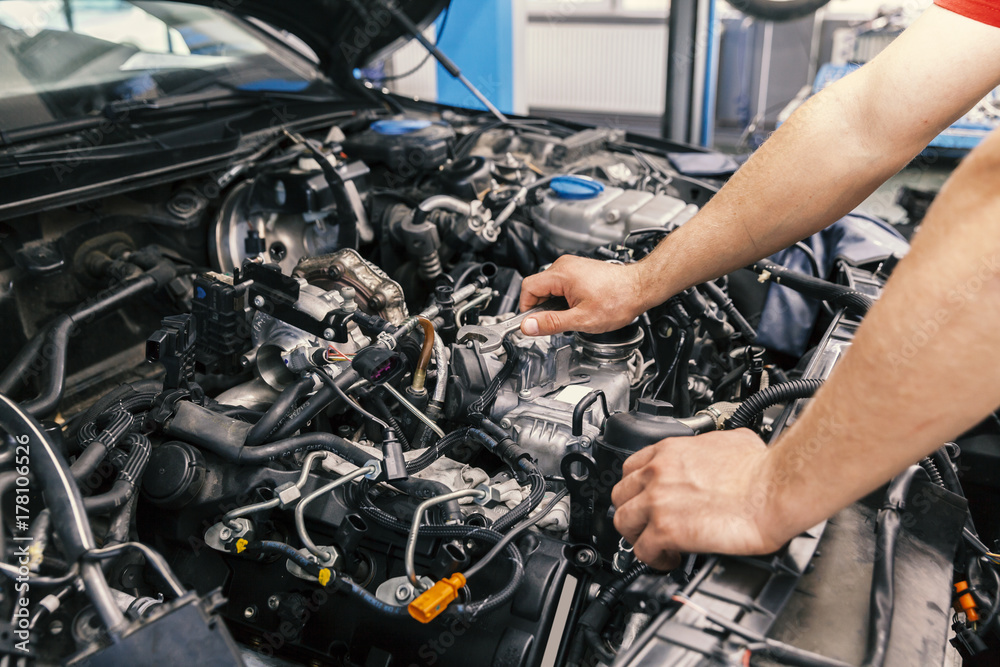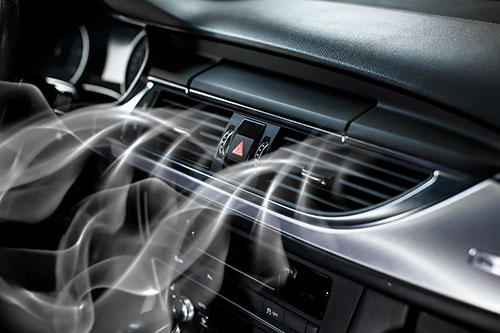Posted on 11/22/2023

Ensuring a clear view of the road is a must for safe driving. Let's go through some of the essential do's and don'ts for windshield washer fluid and wiper blade maintenance. Do: Choose the Correct Windshield Washer Fluid Select a fluid that is applicable to your climate—winter formulas for cold weather, and summer formulas for warmer regions. Don't: Use Plain Water Avoid using plain water, as it does NOT have the cleaning additives needed to remove debris. Water can also freeze in colder temperatures, hindering your washer fluid system from performing as designed. Do: Regularly Check and Refill Frequently check and top off your windshield washer fluid to avoid running out, especially when it is most needed. Keep an extra bottle in your trunk for emergencies. Don't: Ignore Warning Signs Address streaks, sm ... read more
Posted on 9/27/2023

What are the different types of Headlights? Seeing where you are going is important for your safety. When it is time to replace your headlights you want to make sure you get the right replacement headlights. If you are looking for brighter lights or trying to be more energy efficient, there are different choices to meet requirements. The three main types of headlights are: LED, HID or ‘xenon’, and halogen. Halogen headlights Halogen headlights have been the standard for many years and are still the most common headlight in use today. They are affordable, last a long time, and are easy to replace. However, they are not as energy efficient as LED and HID headlights and tend to generate excess heat. LED headlights Light emitting diode (LED) headlights are relatively new to the scene. Unlike Halogen and HID lights, LED lights generate almost no heat and their low energy requirements help preserve your ... read more
Posted on 7/26/2023

Engine cooling and engine air conditioning are two different systems that play crucial roles in maintaining the performance and longevity of vehicles. Engine cooling is primarily responsible for regulating the temperature of the engine, while air conditioning focuses on cooling the interior of the vehicle for passenger comfort. Engine cooling is essential to prevent overheating, which can lead to severe damage to the engine. It typically involves a radiator, coolant, water pump, and thermostat. The radiator helps dissipate heat from the engine coolant, which absorbs excess heat from the engine. The water pump circulates the coolant, ensuring that it flows through the engine and radiator, while the thermostat regulates the coolant flow based on the engine's temperature. This cooling system prevents the engine from reaching excessively high temperatures, optimizing its performance and preventing potential breakdowns. On the other hand, air conditioning is responsible for cooli ... read more
Posted on 6/5/2023

A car’s main job is to get you from point A to point B as quickly, safely and as comfortably as possible. Just as much as getting to your destination quickly is important, so is the ability to stop when you get there or if something gets in your way. You constantly must be mindful of all the things on the road: fellow drivers, people, animals and other dangers that may appear. That’s where your brakes come in. The brakes in your car are what allow the wheels on your car to stop whenever you hit the brake pedal. What many don’t know is how the brake system actually works nor about the different types of braking systems that exist. Just like any machine the braking system in a car has multiple parts that allow this complicated system to function properly. Each of these parts play a role in making sure that you can slow and stop your car in any situation. What are these key components you speak of? Brake Rotor/Disc The brake rotor is what feels the pressure from the b ... read more
Posted on 3/22/2023

Spring has sprung and all the pollens and allergens associated with it!! With all the recirculated air in your vehicle, your car’s cabin air filter and engine air filter should be inspected to ensure they are providing clean air to you and your car. The cabin air filter cleans the air coming into the passenger compartment. The cabin air filter typically traps pollen, bacteria, dust and exhaust gases that may find their way into a vehicle’s heating, ventilation and air conditioning (HVAC) system, compromising interior air quality and damaging the system. The cabin air filter also prevents leaves, bugs and other debris from entering the HVAC system, which could also cause problems. Heavy airborne contaminants, such as pollen can pollute cabin air filters quickly compromising the integrity of the air in the passenger compartment. The engine air filter traps dirt particles, pollen and other debris which can cause costly engine damage. They also play a critical role in keeping pollen ... read more